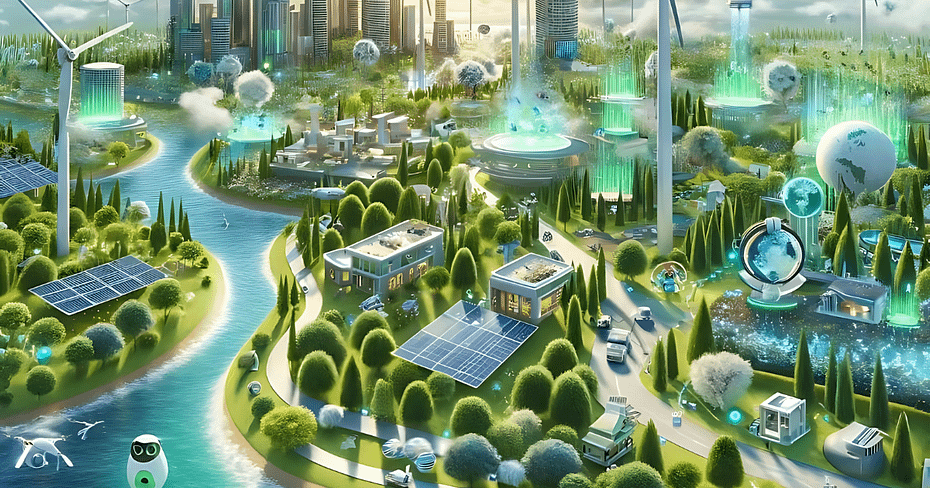As the urgency of addressing climate change grows, innovative solutions are needed to mitigate its impact and promote environmental sustainability. Artificial intelligence (AI) is emerging as a powerful tool in this endeavor, offering new opportunities to tackle complex environmental challenges. Let’s explore how AI is playing a crucial role in advancing climate change mitigation and environmental sustainability:
1.Climate Modeling and Prediction: AI algorithms analyze vast amounts of climate data, including temperature trends, atmospheric patterns, and greenhouse gas emissions, to develop accurate climate models and predictions. By forecasting future climate scenarios, policymakers and stakeholders can make informed decisions and implement effective strategies to mitigate climate change’s adverse effects.
2.Renewable Energy Optimization: AI technologies optimize the generation, distribution, and consumption of renewable energy sources such as solar, wind, and hydroelectric power. Machine learning algorithms optimize energy production and storage systems, improve grid efficiency, and enhance renewable energy integration, reducing reliance on fossil fuels and mitigating greenhouse gas emissions.
3.Resource Management and Conservation: AI-powered systems monitor and analyze environmental data to support sustainable resource management and conservation efforts. From monitoring biodiversity and wildlife habitats to managing water resources and forests, AI technologies provide valuable insights for preserving ecosystems, protecting endangered species, and promoting environmental stewardship.
4.Climate Adaptation and Resilience: AI-driven risk assessment and adaptation planning help communities prepare for and respond to the impacts of climate change, such as extreme weather events, sea-level rise, and biodiversity loss. By identifying vulnerable areas and implementing adaptive measures, policymakers and stakeholders can enhance resilience and minimize the socio-economic impacts of climate-related disasters.
5.Smart Agriculture and Land Use:AI technologies optimize agricultural practices and land use decisions to enhance productivity, reduce environmental footprint, and promote sustainable farming practices. From precision agriculture and crop monitoring to soil health management and carbon sequestration, AI-driven solutions support sustainable food production while minimizing deforestation and habitat destruction.
While AI holds great promise in advancing climate change mitigation and environmental sustainability, it’s essential to address ethical considerations, data privacy, and equity to ensure that AI-powered solutions benefit all communities and ecosystems. By harnessing the transformative potential of AI to innovate and collaborate, we can accelerate progress towards a more sustainable and resilient future for generations to come.

